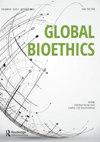Science in society: challenges and opportunities for indigenous knowledge in the present-day context
Q1 Arts and Humanities
引用次数: 4
Abstract
Generally, when we talk or think about science, we refer to that of Western or industrialized societies, assuming that science is only there in those societies and quite often implying that scientific rigour or interest is absent in other societies. The role of science is to help mankind meet the various demands for exploiting natural resources in the best possible way without adversely affecting the environment. In most societies, there exists a rich body of knowledge based on how to meet the demands of that particular society but quite often these are ignored. We need to look at indigenous science and technology particularly when an existing body of knowledge is available. Perhaps it is better to develop it instead of disregarding it in the name of scientific progress. The prevailing health and medical system, the Western system, has unfortunately failed to meet the needs of all. In most countries, frightening policy changes place less and less emphasis on the social and welfare sectors and higher emphasis on the economic and infrastructure sectors. As such, funds allocated to health are going down. The implications of such a trend in countries where health insurance is unaffordable for the majority, is unimaginable. In this changing situation, the conditions of the poor, particularly the indigenous people, have become critical. In this paper, challenges and opportunities for indigenous health practices are examined in the context of forest situations, forest policy and related environmental issues.社会中的科学:当代背景下本土知识的挑战与机遇
一般来说,当我们谈论或思考科学时,我们指的是西方或工业化社会,假设科学只存在于这些社会中,并经常暗示其他社会中缺乏科学的严谨性或兴趣。科学的作用是帮助人类以最好的方式满足开发自然资源的各种需求,而不会对环境造成不利影响。在大多数社会中,存在着基于如何满足特定社会需求的丰富知识体系,但这些知识往往被忽视。我们需要关注本土科学和技术,特别是在现有知识体系可用的情况下。也许最好是发展它,而不是以科学进步的名义忽视它。不幸的是,现行的卫生和医疗系统,即西方系统,未能满足所有人的需求。在大多数国家,令人恐惧的政策变化越来越不重视社会和福利部门,而更加重视经济和基础设施部门。因此,分配给卫生的资金正在减少。在大多数人负担不起医疗保险的国家,这种趋势的影响是难以想象的。在这种不断变化的情况下,穷人,特别是土著人民的状况已变得十分危急。在本文中,在森林情况、森林政策和相关环境问题的背景下审查土著保健做法的挑战和机遇。
本文章由计算机程序翻译,如有差异,请以英文原文为准。
求助全文
约1分钟内获得全文
求助全文

 求助内容:
求助内容: 应助结果提醒方式:
应助结果提醒方式:


